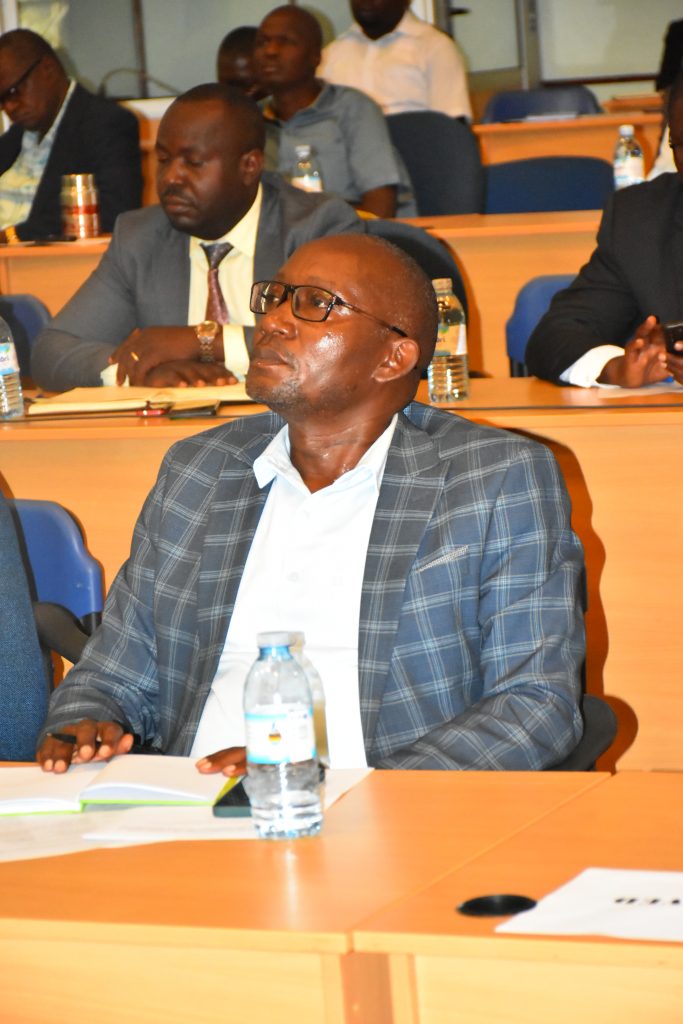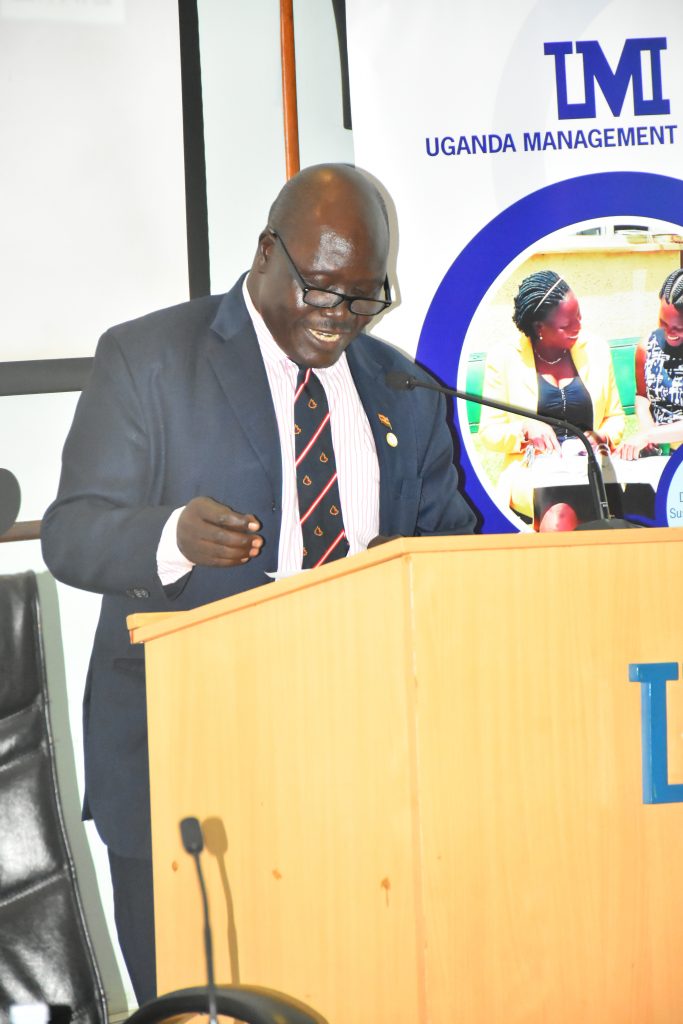On November 28, 2023, the Uganda Management Institute (UMI) and the Uganda National Commission for UNESCO (UNATCOM) collaborated to organize a landmark Public Policy Dialogue on the ethical considerations surrounding the use of emerging medical technologies, particularly DNA testing, in Uganda. The event, hosted at the UMI campus in Kampala, aimed to foster discussions on the responsible and ethical deployment of these cutting-edge technologies.
The dialogue focused on exploring the ethical challenges and considerations associated with the expanding use of DNA testing in various domains, including healthcare, forensics, and genealogy. The event underscored the need for a comprehensive framework addressing ethical concerns related to the collection, storage, and use of genetic information.
Honorable Peace Mutuzo, the Minister of Culture, served as the chief guest for the dialogue and was represented by Mr. Patrick Menya, the Principal Gerontologist. Mr. Menya highlighted the potential repercussions of DNA testing, emphasizing the risk of family and community disintegration if not well managed. He expressed concerns about potential abuses of the technology and the adverse effects on affected individuals, particularly children, which could lead to social conflicts and community-level security threats.

Mr. Patrick Menya, the Principal Gerontologist following the proceedings of the dialogue
Delivering remarks on behalf of Minister of Culture Hon. Mutuzo, Mr. Patrick Menya emphasized the significance of ethical considerations in the rapidly evolving landscape of medical technologies. He stressed the need for a delicate balance between the potential benefits of these technologies and the protection of individual rights and cultural values.
Assoc. Prof. Noah Kiwanuka from the Epidemiology and Biostatistics Department at Makerere University School of Public Health noted that the emergence of medical technologies, particularly in the realm of DNA testing, presents unprecedented opportunities for healthcare and research. However, as we embrace these advancements, it is imperative that we prioritize ethical considerations to ensure that the benefits are realized without compromising individual rights, cultural sensitivities, and societal values.”
The dialogue featured expert presentations and panel discussions covering a spectrum of topics, including consent procedures, data privacy, cultural implications, and the regulatory framework for emerging medical technologies. Dr. Frederick Nakwagala, Head of Internal Medicine at Mulago Hospital and Bioethicist, stressed the importance of engaging local communities and incorporating cultural perspectives into the development of ethical guidelines.
Participants actively engaged in discussions, sharing insights and experiences related to the use of DNA testing in healthcare, forensics, and genealogy. The dialogue provided a platform for attendees to express concerns about potential misuse of genetic information, the need for informed consent, and the importance of community education.
Dr. Dominic Mundrugo Ogo Lali, Assistant Secretary-General of UNATCOM, reminded participants about the International Declaration on Human Genetic Data (IDHGD), adopted in 2003 by UNESCO. The IDHGD provides specific guidance on the collection, processing, storage, and use of genetic data.

Dr. Dominic Mundrugo Ogo Lali, Assistant Assistant Secretary General, UNATCOM delivering remarks during the closure of the dialogue
As the dialogue concluded, participants commended the collaborative efforts of UMI and UNATCOM in facilitating an open and constructive conversation on the ethical use of emerging medical technologies. The insights gained from this dialogue are expected to be translated into a policy brief, to be shared with stakeholders, relevant sector officials, and the cabinet for further processing.
The Public Policy Dialogue on Ethics in the Use of Emerging Medical Technologies for DNA Testing signifies Uganda’s commitment to ensuring that advancements in science and technology align with ethical principles, cultural values, and the welfare of its citizens.

